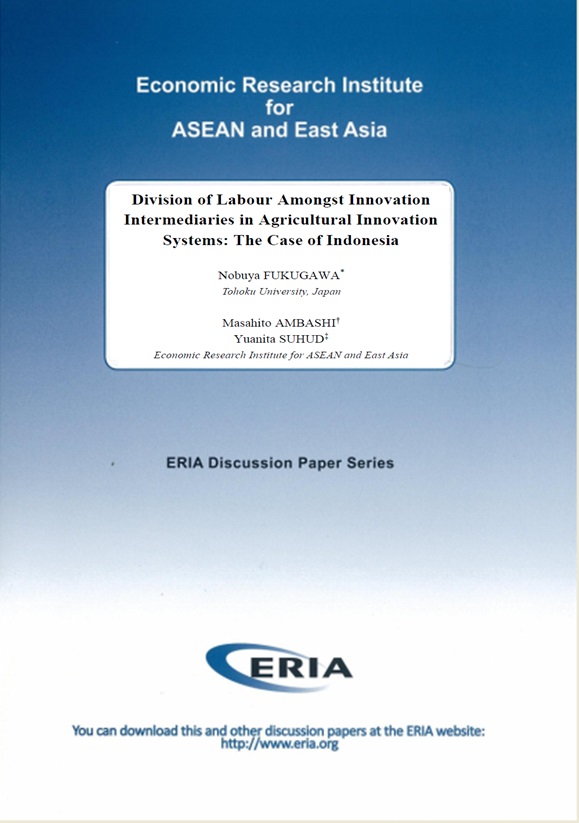Division of Labour Amongst Innovation Intermediaries in Agricultural Innovation Systems: The Case of Indonesia

Date:
12 November 2018Category:
Connectivity, Innovation and TechnologyType:
Discussion PapersTags:
Agriculture, InnovationPrint Article:
Innovation intermediaries are individuals and organisations that enhance connectivity amongst constituencies of national, sectoral, and regional systems of innovation, thereby facilitating knowledge spillover. This paper articulates the whole picture of Indonesia’s agricultural innovation system, with a special focus on how different innovation intermediaries play different roles in technology transfer and knowledge dissemination. First, the public sector accounts for more than half of the actors involved in research and extension, but insufficient routes to transfer local needs to the public sector impede efficient feedback. Second, village unit cooperatives are closely associated with extension workers, suggesting the presence of a feedback mechanism, but many of them face serious financial distress. Third, private agricultural research and development and extension are organised and managed efficiently where they involve fewer internal actors working in an environment with minimal bureaucracy. However, a vague regulatory environment makes it difficult for multinational enterprises to hold a positive view towards agricultural research and development and extension from the public sector. Last, the changing governance system and the ensuing shift in political decision-making have introduced uncertainties to the arrangement of actors and resources in the system, which may take some time to resolve.




